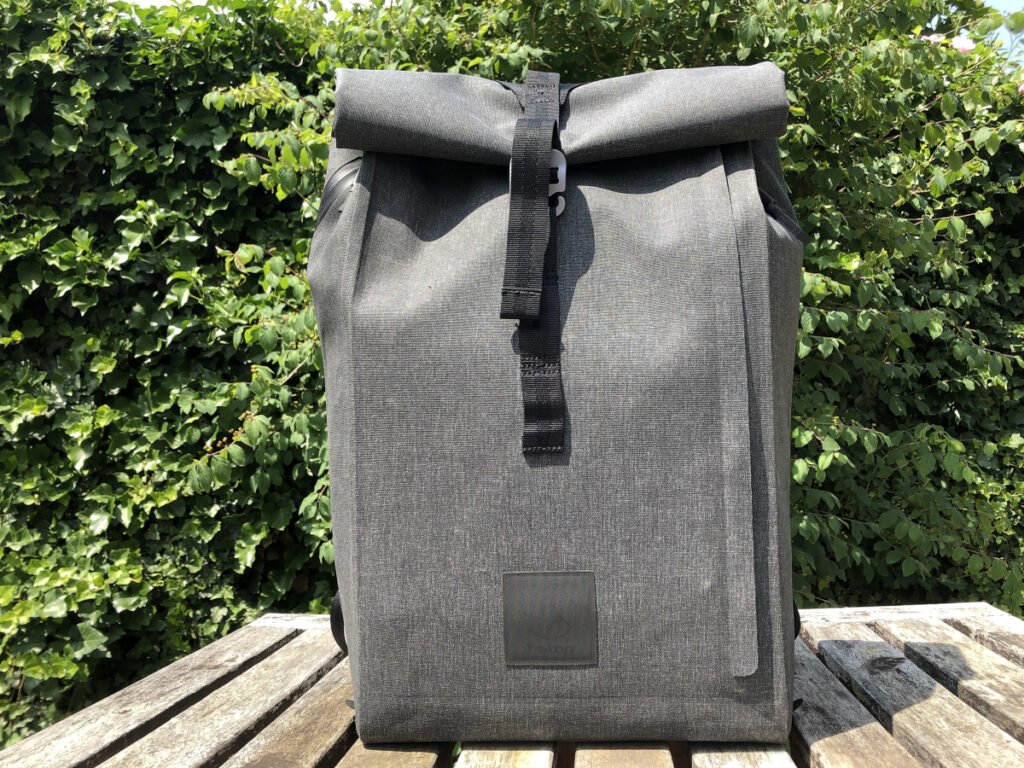Let’s think about cameras for teens. There are several reasons why your teen might want a camera. Maybe they want to take pictures where it’s risky or impossible to use their phone—things like going to the skatepark, mountain biking, or when they’re swimming.
They might need it for a high school photography course. Perhaps you’re a teacher looking for recommendations for your students. Something that offers them more manual control of exposure than their phones do.
It’s tough to pick the best camera here. All of them are great, and some, like the action cams, have a specific use. For an overall winner, though, we’ve chosen a camera that oozes style, the Nikon Z fc. It has great picture quality and is perfect for learning photography.
What Are the Best Cameras for Teens?
Before we discuss each camera in detail, here’s a summary of our recommendations.
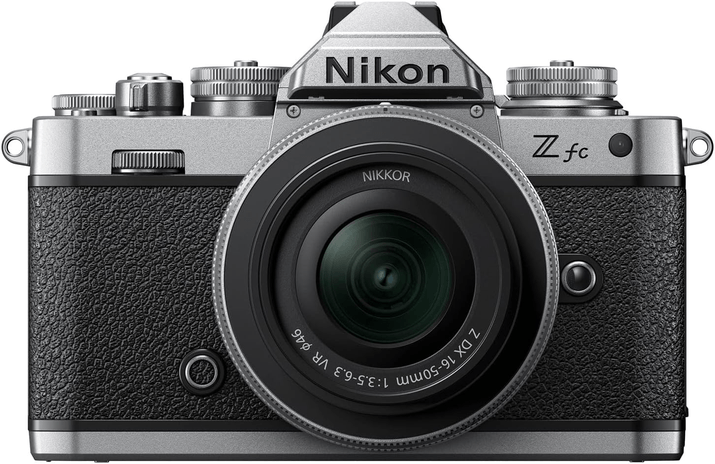
- Fabulous retro looks
- Easy-to-use controls for beginners
- 4K video
- Weather-sealed body
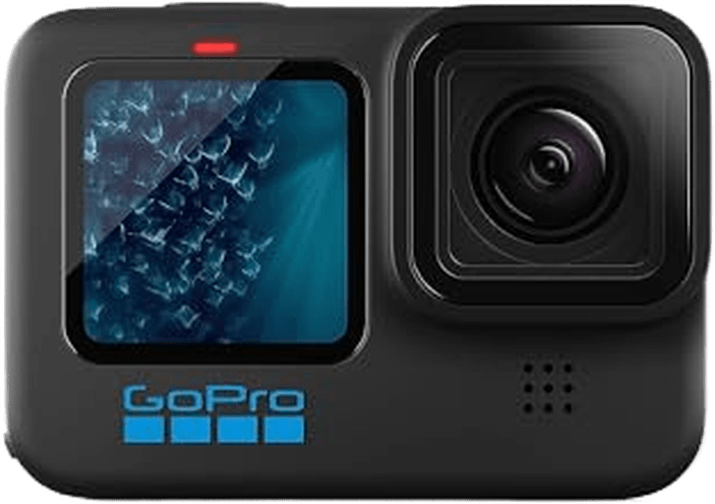
- Amazing time-lapse and hyper-lapse video
- Hypersmooth and horizon levelling look incredible
- Waterproof to 33 feet without housing
- Video up to 5.3K
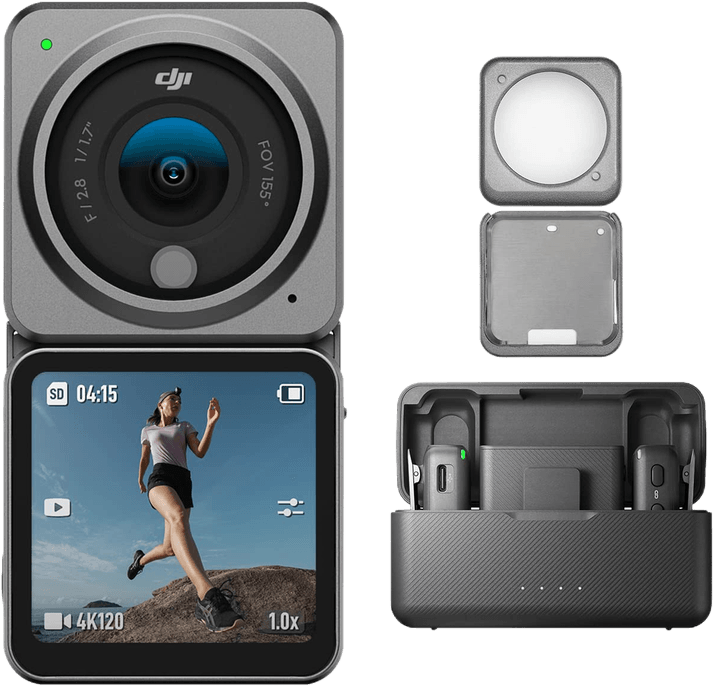
- Unique modular design
- Waterproof to 33 feet without housing
- Up to 8x slow motion
- Magnetic mounting options
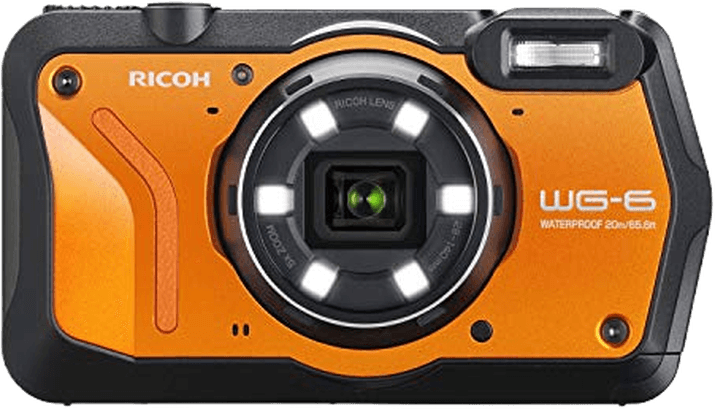
- Focuses as close as 1 cm
- Built-in ring light for macro
- Tough waterproof body
- Action cam capabilities with compact camera usability
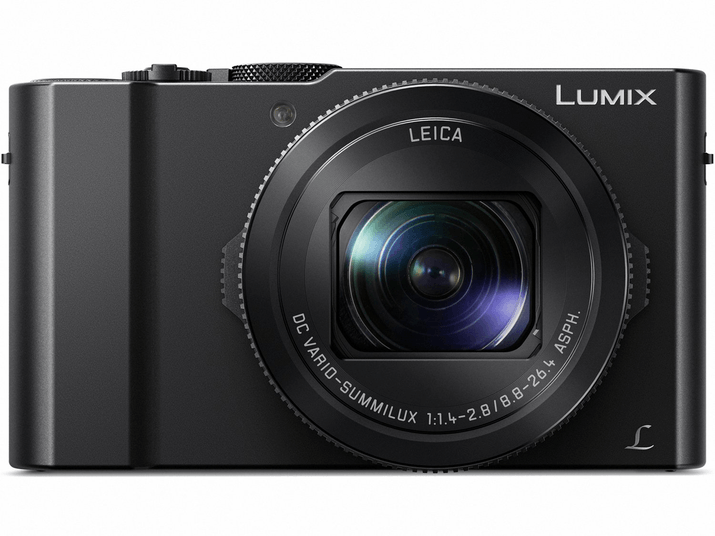
- Excellent 1-inch sensor
- Leica lens gives great sharpness
- Built-in image stabilization
- Fast maximum f/1.4 aperture
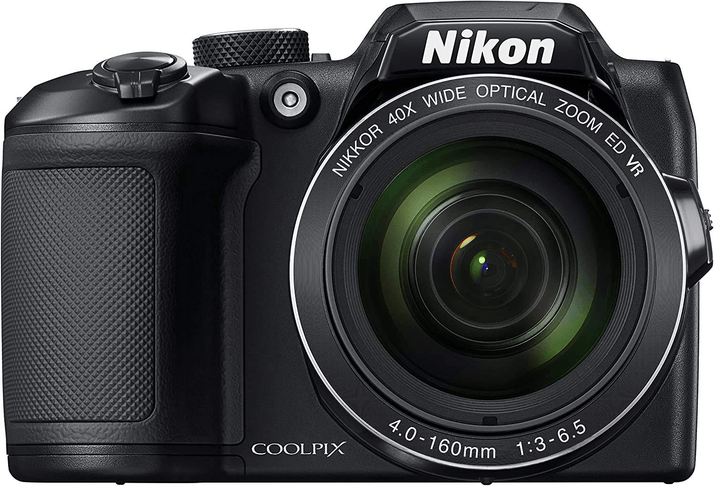
- Impressive 40x zoom lens
- Great value
- Optical image stabilization
- Nikon app for easy sharing
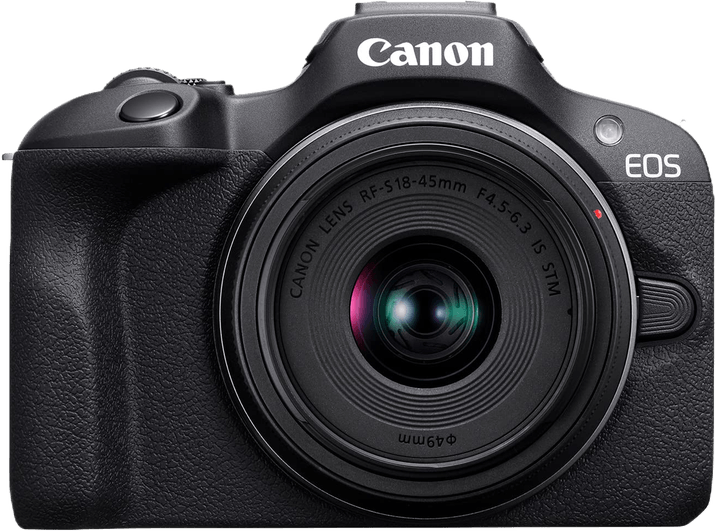
- No-nonsense simplicity
- 24 MP sensor
- Burst speed of 15 fps
- Superb AF with 651 focus points
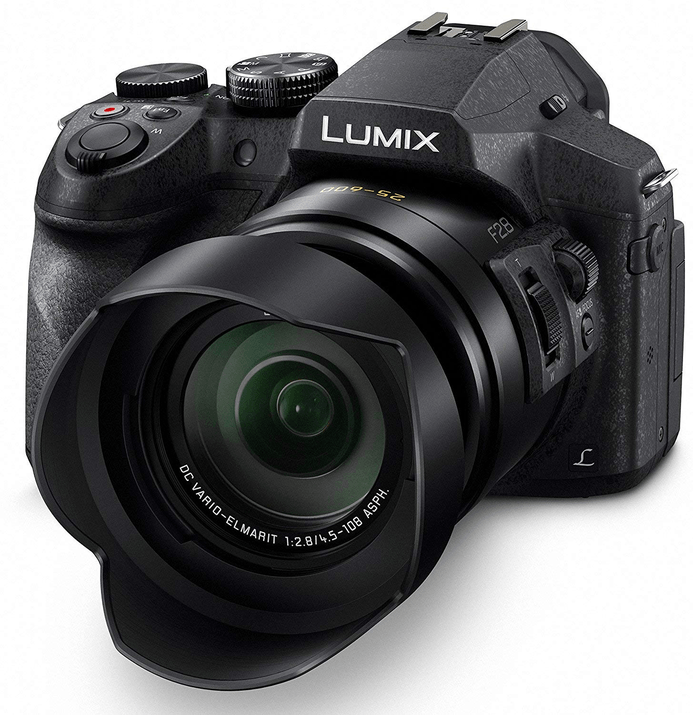
- Lens stabilization
- Fast constant f/2.8 maximum aperture
- 4K video
- Great value for money
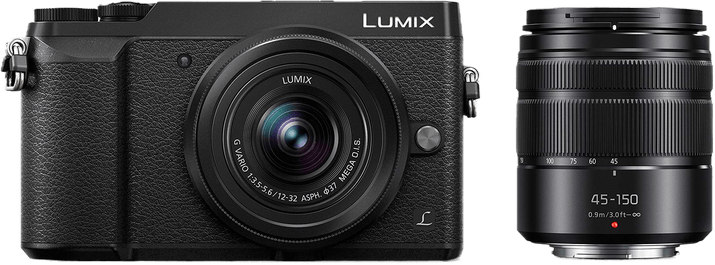
- Impressive face-detection autofocus
- In-body 5-axis stabilization
- Focus tracking via touchscreen
- 4K video
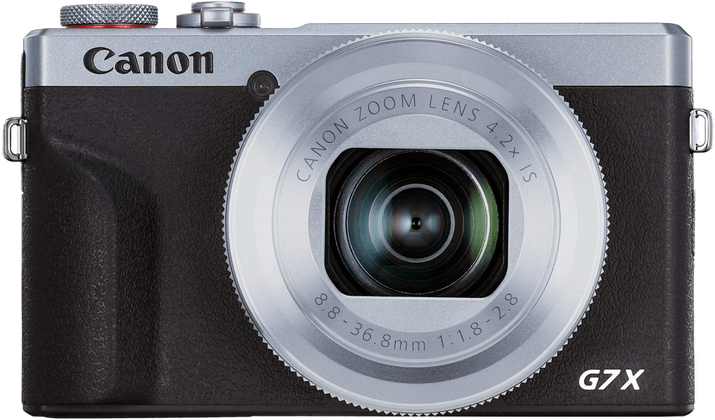
- Excellent high dynamic range
- Great for live streaming
- Tilting touchscreen
- Fast burst shooting mode
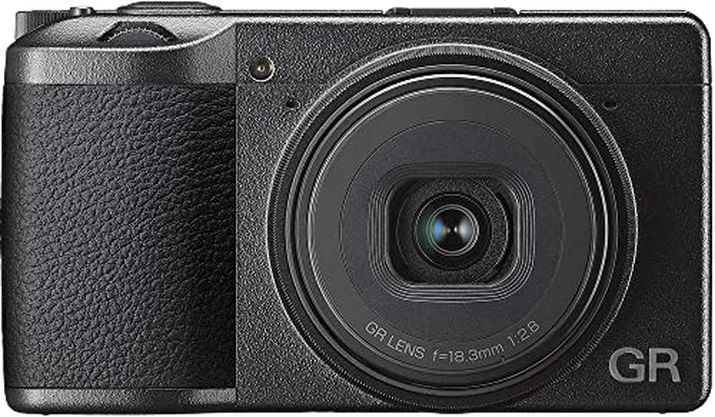
- 24 MP sensor
- Maximum ISO fo 102,400
- In-body stabilization
- Built-in neutral density filters
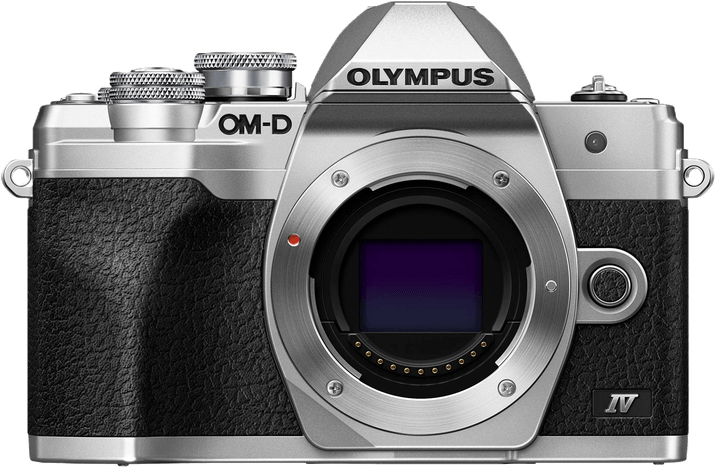
- Compact, stylish body
- Well-positioned controls for learning photography
- In-body stabilization
- Excellent range of lenses available
Now, starting with our top overall pick, let’s look at the cameras in a little more detail.
1. Nikon Zfc

| Brand |
Brand
Nikon
|
| Megapixels |
Megapixels
21 MP |
| Video |
Video
|
| Sensor Format |
Sensor Format
APS-C
|
| Lens Mount |
Lens Mount
Nikon Z
|
| In-body Stabilization |
In-body Stabilization
No
|
| Autofocus Points |
Autofocus Points
209
|
| Minimum ISO |
Minimum ISO
100
|
| Maximum ISO |
Maximum ISO
51,200
|
| Frame Rate |
Frame Rate
11 fps
|
| Screen Size |
Screen Size
3-inch
|
| Best For |
Best For
Teens interested in learning the elements of exposure
|
Your teenager will love the retro cool of this Nikon Z fc. It looks like it belongs around the neck of an Instagram influencer. Its brushed metal and faux-leatherette finish is actually weather sealed to protect the very non-retro insides.
There’s a 21 MP APS-C sensor and Nikon’s Z-mount for lenses. The old-school knobs are a triumph of style and function. They provide easy control of the elements of exposure. By doing this, they make it easy for your teen to learn and experiment. Of course, every level of automation is also possible.
The impressive list of specifications includes a burst rate of 11 fps, 4K video, and the whole array of Nikon Z-mount lenses. They can even access the plethora of cheap second-hand F-mount lenses with an adapter. But nothing is quite as cool as the equally retro Nikon Z DX 16-50mm lens, complete with image stabilization.
It’s easy to fall in love with this Nikon, and it’s a great choice for a teenager stepping into photography.
2. GoPro HERO10 Black
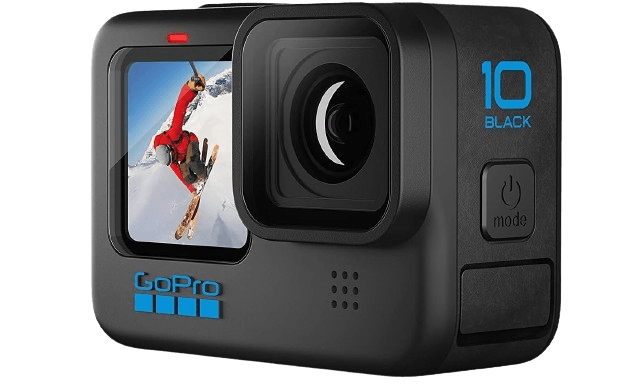
| Brand |
Brand
GoPro
|
| Megapixels |
Megapixels
23 MP |
| Video |
Video
|
| Sensor Format |
Sensor Format
1/1.7-inch
|
| Lens Mount |
Lens Mount
Compact
|
| In-body Stabilization |
In-body Stabilization
Yes
|
| Autofocus Points |
Autofocus Points
1
|
| Minimum ISO |
Minimum ISO
100
|
| Maximum ISO |
Maximum ISO
6,400
|
| Frame Rate |
Frame Rate
30 fps
|
| Screen Size |
Screen Size
2.3-inch
|
| Best For |
Best For
Shooting amazing action video
|
If you want a camera that can go pretty much anywhere, the GoPro HERO10 Black is a great choice. Known for its action cam credentials, the HERO10 packs a load of features into a very small package. It is small enough to fit in your pocket and tough enough to withstand swimming and diving. Although the HERO12 is here now, the HERO10 is still worth a look.
The HERO10 is great if you want a digital camera that will capture lots of action. The stabilization is second to none, and teenagers will love the slow-motion recording. It has a front-facing screen, which is great for vlogging and selfies.
The GoPro Hero10 Black isn’t great for bringing the action to you. It has a fixed focus, fixed aperture, and a fixed-focal-length lens. This makes shooting action scenes quick and simple. But you have to be close to that action. This is perfect for its intended use. But this is not the best camera for your teen if they want to shoot a football game or take portraits.
3. DJI Action 2

| Brand |
Brand
DJI
|
| Megapixels |
Megapixels
12 MP |
| Video |
Video
|
| Sensor Format |
Sensor Format
1/1.7-inch
|
| Lens Mount |
Lens Mount
Compact
|
| In-body Stabilization |
In-body Stabilization
Yes
|
| Autofocus Points |
Autofocus Points
1
|
| Minimum ISO |
Minimum ISO
100
|
| Maximum ISO |
Maximum ISO
6,400
|
| Frame Rate |
Frame Rate
30 fps
|
| Screen Size |
Screen Size
1.76-inch
|
| Best For |
Best For
Every kind of action photography
|
The DJI Action 2 is not as familiar-looking as a GoPro (the DJI Action 4 is much more familiar-looking). But it has some innovative features that make it an interesting choice as a digital camera for teens. It does not have as strong a set of features as the HERO10, but it is cheaper (depending on the configuration).
The Action 2 uses magnets to clip the modules together. They also allow a range of mounting options. It will deliver better-than-HD video recording and has up to 4x slow motion.
The DJI Action 2 shares some shortcomings with the GoPro. You have to go to the action—the 12.7mm lens won’t bring it to you. It doesn’t have the same almost endless range of accessories available. The GoPro mounting system has been around for so long that an entire industry has developed supplying mounts and accessories. Finally, its still photo resolution of 12 MP is limited.
But it is a great compact camera with some innovative features.
4. Ricoh WG-6

| Brand |
Brand
Ricoh
|
| Megapixels |
Megapixels
20 MP |
| Video |
Video
|
| Sensor Format |
Sensor Format
1/2.3-inch
|
| Lens Mount |
Lens Mount
Compact
|
| In-body Stabilization |
In-body Stabilization
Yes
|
| Autofocus Points |
Autofocus Points
9
|
| Minimum ISO |
Minimum ISO
125
|
| Maximum ISO |
Maximum ISO
6,400
|
| Frame Rate |
Frame Rate
34.7 fps
|
| Screen Size |
Screen Size
3-inch
|
| Best For |
Best For
Underwater photography
|
The Ricoh WG-6 is a great bridge camera between an all-out action camera and a more conventional compact camera. The specifications say it will survive a 6.5-foot (2 m) drop onto a hard surface. And it actually outperforms the GoPro for out-of-the-box waterproof capability.
The Ricoh is also a better choice if you want to photograph people being inactive. Its 28-140mm lens encompasses a decent wide-angle and a moderate telephoto. In the middle, you have the perfect focal length for portrait photos. The integrated ring light is great for vlogging and selfies. And the screen is much bigger than a normal action camera.
The f/3.5 lens means that the Ricoh WG-6 struggles in low light. The ring light often compensates for this. But it can be slow to respond to the shutter button.
This is a great compact camera that easily fits in a pocket or backpack and will survive some rough treatment.
5. Panasonic Lumix DMC LX-10

| Brand |
Brand
Panasonic
|
| Megapixels |
Megapixels
20 MP |
| Video |
Video
|
| Sensor Format |
Sensor Format
1-inch
|
| Lens Mount |
Lens Mount
Compact
|
| In-body Stabilization |
In-body Stabilization
Yes
|
| Autofocus Points |
Autofocus Points
49
|
| Minimum ISO |
Minimum ISO
125
|
| Maximum ISO |
Maximum ISO
12,800
|
| Frame Rate |
Frame Rate
10 fps
|
| Screen Size |
Screen Size
3-inch
|
| Best For |
Best For
Teens looking for high-quality, low-light photos
|
Two things strike me about the Panasonic Lumix DMC LX-10. First is the remarkable 1/16,000 of a second shutter speed. The second is the Leica lens. This has a limited optical zoom range from 24-70mm. But at its widest, it boasts a maximum aperture of f/1.4. This puts whole new worlds of photographic possibilities at your teenager’s fingertips.
The articulating screen allows you to see the image from in front of the camera. This is great for vlogging and other video activities. A control ring around the lens adds to the camera’s serious “feel” and performance.
All of this is in a well-made and compact body. This is a real contender for the title of the best camera for teens.
6. Nikon COOLPIX B500

| Brand |
Brand
Nikon
|
| Megapixels |
Megapixels
16 MP |
| Video |
Video
|
| Sensor Format |
Sensor Format
1.2/3-inch
|
| Lens Mount |
Lens Mount
Compact
|
| In-body Stabilization |
In-body Stabilization
Yes
|
| Autofocus Points |
Autofocus Points
1
|
| Minimum ISO |
Minimum ISO
80
|
| Maximum ISO |
Maximum ISO
3200
|
| Frame Rate |
Frame Rate
7 fps
|
| Screen Size |
Screen Size
3-inch
|
| Best For |
Best For
Sports or wildlife photography on the go
|
The Nikon Coolpix B500 looks like a mini DSLR. It has a familiar shape with a lump above the lens and a grip on the right-hand side. This houses the shutter button. The lump above the lens is home to the pop-up flash. Like a DSLR, it has continuous shooting capability. In this case, up to 7.4 frames per second.
The standout feature of the B500 is the optical zoom lens. At both ends of the scale, it goes beyond what the average hobby photographer has. The 22.5mm wide-angle lens gives impressively wide coverage.
And the 900mm telephoto is in the realm of ultra-specialist sports and wildlife photography. You’ll need both the IS and the tripod mount if you do much shooting at that length. The downside of all that range is in the aperture. The absolute maximum of f/3 is quite slow.
You’ll only find the Nikon Coolpix B500 as renewed or second-hand. But that doesn’t mean you shouldn’t put it on your shortlist. It’s great value for money.
7. Canon EOS R100

| Brand |
Brand
Canon
|
| Megapixels |
Megapixels
24 MP |
| Video |
Video
|
| Sensor Format |
Sensor Format
APS-C
|
| Lens Mount |
Lens Mount
Canon RF
|
| In-body Stabilization |
In-body Stabilization
No
|
| Autofocus Points |
Autofocus Points
651
|
| Minimum ISO |
Minimum ISO
100
|
| Maximum ISO |
Maximum ISO
32,000
|
| Frame Rate |
Frame Rate
15 fps
|
| Screen Size |
Screen Size
3-inch
|
| Best For |
Best For
Teens interested in learning photography with a DSLR
|
Our choice of the Canon EOS R100 RF-RF-S18-45mm mirrorless camera is a sure sign that times are changing. Our previous recommendation here was the EOS Rebel T100, an APS-C DSLR. But mirrorless is not just here to stay, it is the future.
A quick look at the specs helps us to understand why. Instead of the Rebel’s 9 AF points, we have 651! Gone is the 3 fps drive, which is now a very respectable 15 fps! So we have a massively capable camera with all the controls your teen might need to learn photography skills.
Because the viewfinder is electronic, they will see the effect of the changes they make in real-time. There’s no need to take the picture and then see the outcome. And the AF works across the whole frame and is inherently fast as the system reads straight from the sensor.
The Canon EOS R100 RF-RF-S18-45mm mirrorless camera is a perfect entry into interchangeable lens cameras from the world-leading brand.
8. Panasonic Lumix DMC-FZ300

| Brand |
Brand
Panasonic
|
| Megapixels |
Megapixels
12 MP |
| Video |
Video
|
| Sensor Format |
Sensor Format
1.2/3-inch
|
| Lens Mount |
Lens Mount
Compact
|
| In-body Stabilization |
In-body Stabilization
Yes
|
| Autofocus Points |
Autofocus Points
1
|
| Minimum ISO |
Minimum ISO
100
|
| Maximum ISO |
Maximum ISO
6,400
|
| Frame Rate |
Frame Rate
12 fps
|
| Screen Size |
Screen Size
3-inch
|
| Best For |
Best For
Wildlife photography at a distance
|
A Leica lens with constant f/2.8 from 25 to 600mm. That is something to make you sit up and take notice. The f/2.8 aperture at 600mm is an amazing achievement. Add to this the technical wizardry that Panasonic uses to bring 4K frame rates to still photography.
It means you have a potential class leader. 8 MP stills are possible at 30 fps. There is also a feature found on better action cameras. The camera records stills at 30 fps for one second before and after you press the shutter button. This is impressive stuff.
The Panasonic FZ300 is a great choice for teens interested in action photography and looking to learn the craft. It has a full range of manual controls and semi-automatic operation.
9. Panasonic Lumix DMC-GX85

| Brand |
Brand
Panasonic
|
| Megapixels |
Megapixels
16 MP |
| Video |
Video
|
| Sensor Format |
Sensor Format
Micro Four Thirds
|
| Lens Mount |
Lens Mount
Micro 4/3
|
| In-body Stabilization |
In-body Stabilization
Yes
|
| Autofocus Points |
Autofocus Points
1
|
| Minimum ISO |
Minimum ISO
100
|
| Maximum ISO |
Maximum ISO
25,600
|
| Frame Rate |
Frame Rate
8 fps
|
| Screen Size |
Screen Size
3-inch
|
| Best For |
Best For
Teens who want a compact camera with interchangeable lenses
|
The Lumix DMC-GX85 is a great introduction to the world of mirrorless cameras. This kit comes with two lenses, giving a great range of focal lengths. The Lumix also uses a very sophisticated IS system, making it an attractive choice for video and stills.
Combine the IS and the maximum ISO of 25,600, and you have a great camera that can shoot in low light and challenging circumstances. This is one of the best digital cameras as an entry point to serious photography for any teenager.
10. Canon PowerShot G7 X Mark III

| Brand |
Brand
Canon
|
| Megapixels |
Megapixels
20 MP |
| Video |
Video
|
| Sensor Format |
Sensor Format
1-inch
|
| Lens Mount |
Lens Mount
Compact
|
| In-body Stabilization |
In-body Stabilization
Yes
|
| Autofocus Points |
Autofocus Points
31
|
| Minimum ISO |
Minimum ISO
125
|
| Maximum ISO |
Maximum ISO
12,800
|
| Frame Rate |
Frame Rate
30 fps
|
| Screen Size |
Screen Size
3-inch
|
| Best For |
Best For
Teens looking for a pocketable camera with fast shooting capabilities
|
The Canon PowerShot G7X Mark III is reasonably priced, and it outperforms anything your teen has by way of a smartphone camera.
The 1-inch CMOS sensor is bigger and more sensitive than many other cameras on this list. That means that the 20.1 MP sensor will give you better image quality.
The PowerShot G7X is also notable for its low-light capabilities. It has an ISO range from 125 to 12,800, which is impressive for a compact camera. There is also an impressive continuous shooting speed of 20 fps. This burst mode is ideal for sports and other action photography.
The LCD touchscreen and electronic viewfinder tilt 180 degrees. This allows you to take photos at awkward angles. And it means selfies are a breeze, either photos or using the 4K video.
To round off the teen-appealing features, there’s the capable zoom lens and image stabilization to keep the video and pictures steady.
11. Ricoh GR III

| Brand |
Brand
Ricoh
|
| Megapixels |
Megapixels
24 MP |
| Video |
Video
|
| Sensor Format |
Sensor Format
APS-C
|
| Lens Mount |
Lens Mount
Compact
|
| In-body Stabilization |
In-body Stabilization
Yes
|
| Autofocus Points |
Autofocus Points
1
|
| Minimum ISO |
Minimum ISO
100
|
| Maximum ISO |
Maximum ISO
102,400
|
| Frame Rate |
Frame Rate
4 fps
|
| Screen Size |
Screen Size
3-inch
|
| Best For |
Best For
Teens who want a compact, capable camera to take anywhere
|
The Ricoh GR III styling provides a compact and stylish body. It has intuitive and clear controls for all the important functions. And the images it produces are excellent.
It has a leaf shutter. This means you can choose any shutter speed if you use an external flash. But it doesn’t have a built-in flash. If there is too much light, the GR III has two neutral density filters built in. This is a less common but potentially very useful feature.
Autofocus is excellent. The AF points cover the whole sensor. You can also preselect a “snap focus” point. It’s a step up from being at the mercy of the AF system or switching to manual.
It’s a great choice if your teenager wants simplicity, portability, and great pictures. We have a review of the Ricoh GR III, and you can read it here.
12. Olympus OM-D E-M10 Mark IV

| Brand |
Brand
Olympus
|
| Megapixels |
Megapixels
20 MP |
| Video |
Video
|
| Sensor Format |
Sensor Format
Micro Four Thirds
|
| Lens Mount |
Lens Mount
Micro 4/3
|
| In-body Stabilization |
In-body Stabilization
Yes
|
| Autofocus Points |
Autofocus Points
121
|
| Minimum ISO |
Minimum ISO
200
|
| Maximum ISO |
Maximum ISO
25,600
|
| Frame Rate |
Frame Rate
15 fps
|
| Screen Size |
Screen Size
3-inch
|
| Best For |
Best For
Aspiring photographers looking for great image quality
|
The Olympus OM-D E-M10 Mark IV seems to win friends all the time. It’s a mirrorless body, and the Micro Four Thirds sensor makes it light and compact. That’s why it’s great for a traveling teen with limited space in their backpack.
Despite its small size, the OM-10 is highly capable. There is even in-body stabilization to prevent camera shake, especially at slower shutter speeds. The IS will also help with video, and this is available in 4K. Given the price point, this is impressive.
It’s a great mirrorless camera for your teenager, especially if they’re looking for something simple but with the potential for more complex work. We have a review of the OM-D E-M10 Mark IV, which you can read here.
What Features Should I Look for in a Digital Camera for Teens?
These cameras are all capable of video recording as well as shooting stills. There are a few things to bear in mind. These mainly relate to the image quality of the photos and videos and the connectivity of the digital camera.
For the hobby photographer, these features also relate to the room for growth. Will beginner photographers be able to develop their skills, knowledge, and understanding? And even if they don’t want to be the next Annie Leibowitz, will they still use it as a hobby photographer?
Look for the sensor resolution of the camera. This will be given as a number followed by MP (megapixels). As a rule of thumb, the bigger the number, the more detail there will be in the photograph.
Video quality also depends on pixels. You will find this stated as how many pixels there are on the vertical edge of the image. Full HD video recording needs at least 1080, so you’ll see “1080p.” One step down is 740p. One step up is described as 4K. In general, get the highest resolution you can afford.
Every camera on this list will be straightforward to use. It will cope well with mixed lighting conditions. If a camera excels in one of these areas, that will get a special mention.
Buyer’s Guide—The Best Cameras for Teens
Should I Choose an Interchangeable Lens Camera?
This all depends on what your teen wants to do with it. Obviously, an action cam will be a fixed-lens camera. And compact cameras like the Nikon Coolpix B500 have incredible zoom lenses. For most people, that is more than enough.
But if you want the flexibility to move on to a stable of lenses, usually with better maximum apertures, then an interchangeable system is the way to go.
How Important Is Sensor Size?
Confusingly, we talk about sensor size both in terms of pixels and physical dimensions. The physical size of sensors on these cameras varies, with APS-C being the biggest. These are roughly 2/3 the size of a full-frame camera’s sensor.
But that has no direct relation to sensor size in pixels. Canon’s first professional full-frame DSLR had a 10 MP sensor. And many camera phones, with a sensor 35 times smaller than that, have 48 MP or more. In general, more pixels are better. But it’s not a strict relationship. All of these cameras will match an entry-level film SLR of years gone by.
What Else Should I Think About?
Think carefully about what purpose your teen has for a camera. Do they need something discreet for candid street photography? Or is travel photography their thing? Or perhaps, they want to understand the secrets of exposure and need something with lots of manual control.
Whichever it is, you’ll find a good solution here in this review.
Conclusion
If you want a rugged, go-anywhere camera for a teenager, the GoPro HERO10 Black is a great choice. It is very capable, and it has a certain coolness to it that makes it popular. It is still one of the best cameras on the market.
For a lightweight, pocketable digital camera with great features, I would opt for the Panasonic Lumix DMC LX-10. I like it for its range of features—especially the Leica lens.
But for an overall winner, it’s the utterly charming retro Nikon Z fc.
